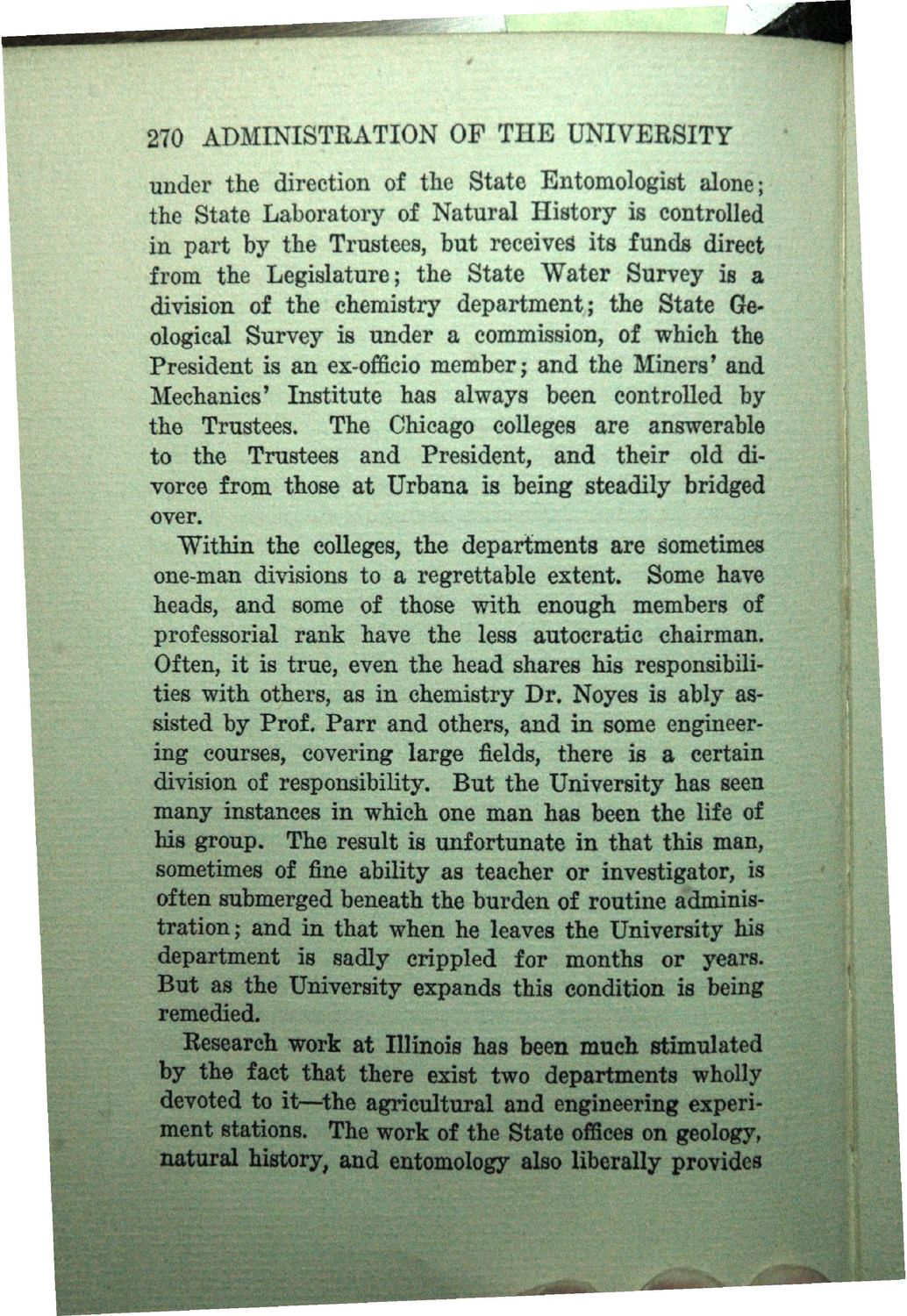| |
| |
Caption: Book - History of the University (Nevins)
This is a reduced-resolution page image for fast online browsing.

EXTRACTED TEXT FROM PAGE:
270 ADMINISTRATION OF THE UNIVERSITY under the direction of the State Entomologist alone; the State Laboratory of Natural History is controlled in part by the Trustees, but receives its funds direct from the Legislature; the State Water Survey is a division of the chemistry department; the State Geological Survey is under a commission, of which the President is an ex-officio member; and the Miners1 and Mechanics( Institute has always been controlled by the Trustees. The Chicago colleges are answerable to the Trustees and President, and their old divorce from those at Urbana is being steadily bridged over. Within the colleges, the departments are sometimes one-man divisions to a regrettable extent. Some have heads, and some of those with enough members of professorial rank have the less autocratic chairman. Often, it is true, even the head shares his responsibilities with others, as in chemistry Dr. Noyes is ably assisted by Prof. Parr and others, and in some engineering courses, covering large fields, there is a certain division of responsibility. But the University has seen many instances in which one man has been the life of his group. The result is unfortunate in that this man, sometimes of fine ability as teacher or investigator, is often submerged beneath the burden of routine administration; and in that when he leaves the University his department is sadly crippled for months or years. But as the University expands this condition is being remedied. Research work at Illinois has been much stimulated by the fact that there exist two departments wholly devoted to it—the agricultural and engineering experiment stations. The work of the State offices on geology, natural history, and entomology also liberally provides
| |